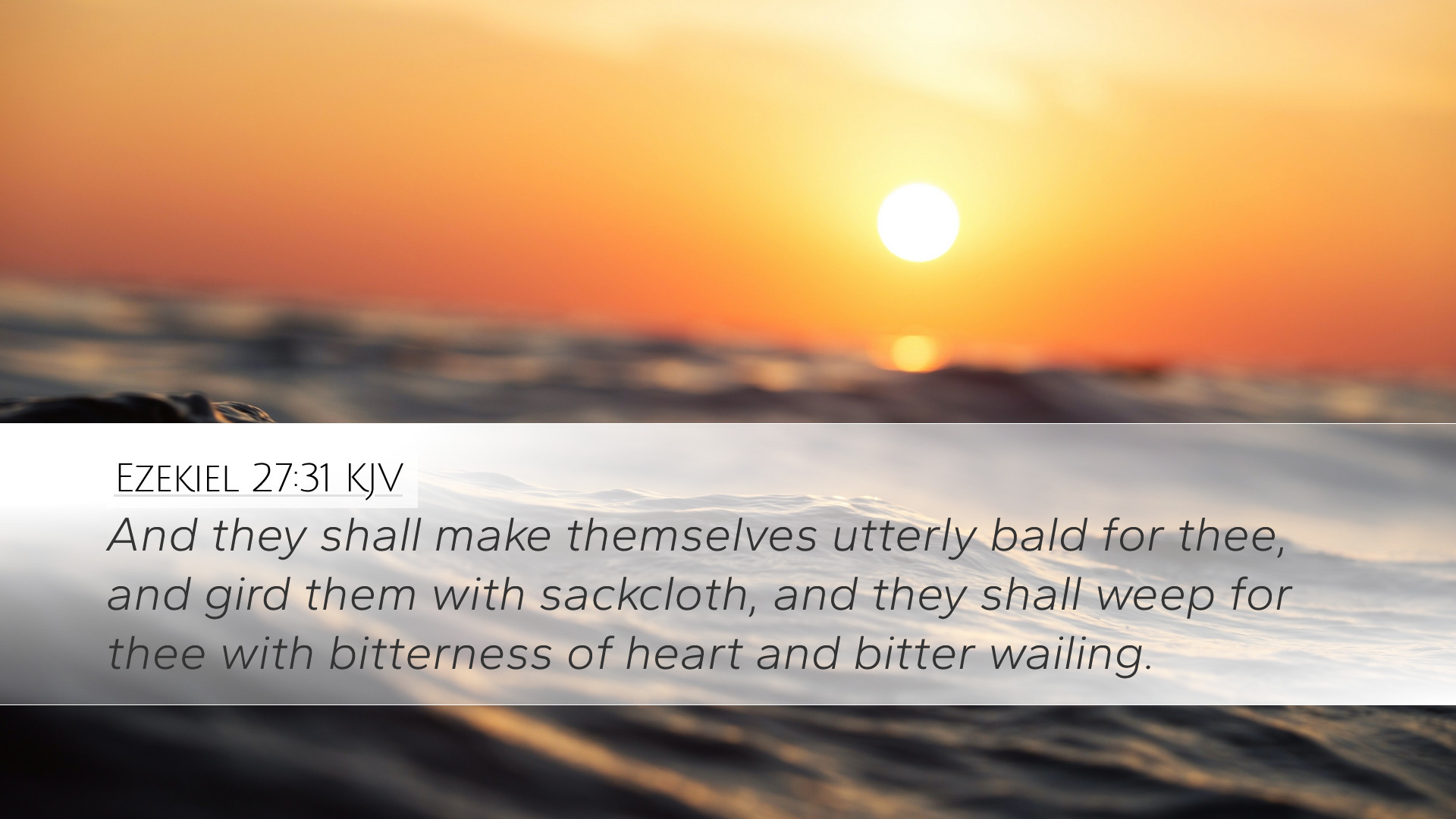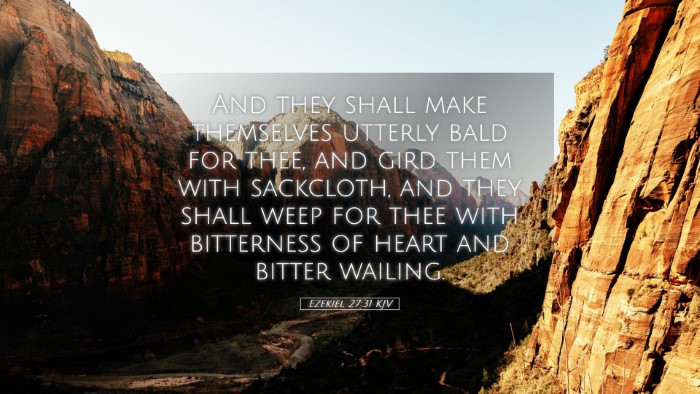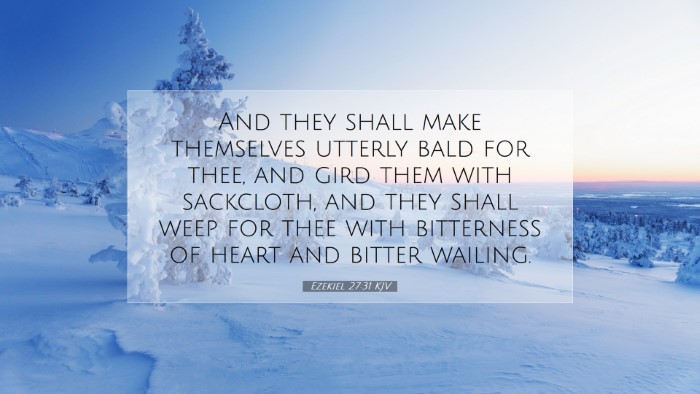Ezekiel 27:31 - Commentary
Ezekiel 27:31 states:
"And they shall make themselves utterly bald for thee, and gird them with sackcloth, and they shall weep for thee with bitterness of soul, and with bitter mourning."
This verse encapsulates a profound emotional response to the fall of Tyre, illustrating the reactions of its merchants and allies. The mourning here is expressed with deep symbolic acts common in ancient Near Eastern cultures. This commentary synthesizes insights from various public domain sources to reveal the layers of meaning within this text.
Contextual Analysis
The entire chapter of Ezekiel 27 serves as a lamentation over the destruction of Tyre, a prominent Phoenician city known for its wealth, culture, and extensive trade networks. This passage, specifically focusing on the reactions to Tyre’s downfall, serves as a broader metaphor for the consequences of pride and the inevitability of divine judgment.
Emotional Expressions of Mourning
The actions described—making themselves bald, wearing sackcloth, and weeping—are traditional expressions of grief (Henry). The act of shaving heads signifies deep sorrow, and sackcloth is a symbol of humility and mourning, emphasizing the gravity of Tyre's judgment.
Matthew Henry notes that these acts indicate not just personal pain but a collective lamentation, signifying the weight of loss felt across the trading regions influenced by Tyre’s economic strength. This mourning reflects the loss of not just a city but a way of life; the merchants and allies find themselves in despair at the economic collapse.
Imagery and Symbolism
The imagery in this verse paints a striking picture of desolation. Albert Barnes comments on the use of "baldness" and "sackcloth" as markers of desolation, suggesting they convey both shame and helplessness before the judgment of God. Such powerful symbols ground the reader in the cultural realities of the time while also transcending to universal themes of loss and repentance.
Adam Clarke emphasizes that the baldness signifies total loss, a permanent state of mourning rather than a temporary one. It serves as a metaphorical expression of the canceling of Tyre’s former glory and wealth, suggesting a complete turning away from titanic prosperity to utter devastation.
Theological Implications
This passage speaks to the character of God as a judge who responds to human pride and sin. The deep remorse expressed reflects the truth that God’s judgment can come suddenly and with significant consequences. Those who trusted in Tyre’s strength and economic prowess are confronted with the reality of vulnerability without reliance on God.
Both Matthew Henry and Albert Barnes highlight how such mourning transcends the immediate context; it can serve as a theological lesson on the futility of placing trust in material wealth or human institutions rather than in God. The fall of Tyre becomes a pivotal lesson in humility and the inevitable downfall that follows prideful arrogance.
Lessons for Today
For modern audiences—particularly pastors, theologians, and students—the verse underscores essential lessons about the temporality of human ambition and the fragility of worldly achievements. The strong emotional response called for in this text challenges contemporary readers to reflect on what they value and rely upon.
- Recognition of Human Frailty: The collective mourning emphasizes that even the mightiest can fall, and that every person must acknowledge their limitations in the face of divine authority.
- Call to Humility: The use of sackcloth and the act of mourning compel believers to practice humility, recognizing that pride brings inevitable ruin.
- Awareness of Divine Judgment: This passage urges a contemporary ethical and theological reflection on lifestyles, prompting a reconsideration of priorities in light of God's ultimate sovereignty.
Conclusion
Ezekiel 27:31 serves not just as a historical lament for Tyre but bears striking relevance for each generation. The burdens of grief, loss, and humility resonate throughout time, reminding the faithful that reliance upon the transient constructs of this world leads to inevitable desolation. Drawing from the insights of Matthew Henry, Albert Barnes, and Adam Clarke, readers are encouraged to internalize these lessons, fostering a heart of reverence and a willingness to mourn the consequences of sin while remaining hopeful in God’s ultimate restoration and grace.


